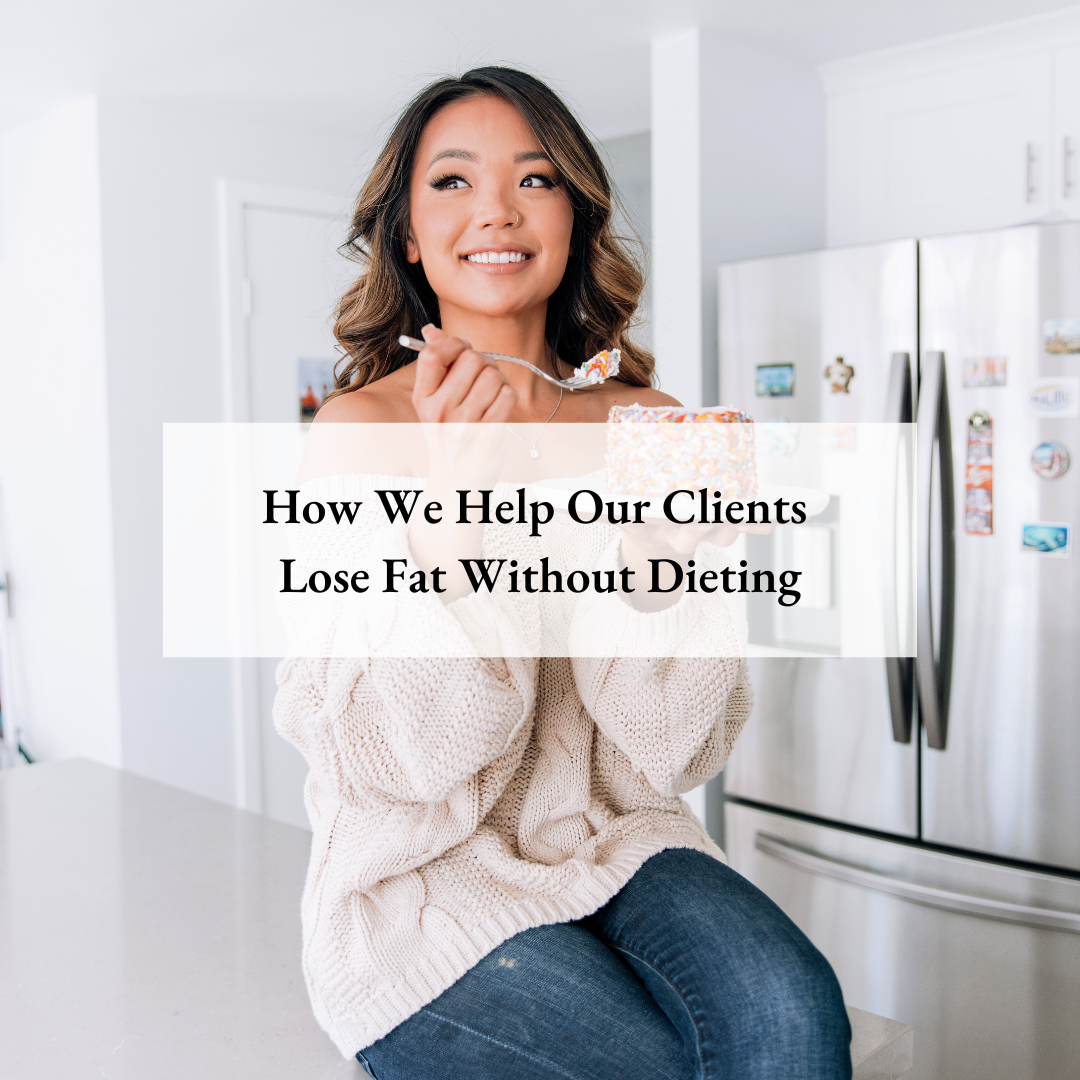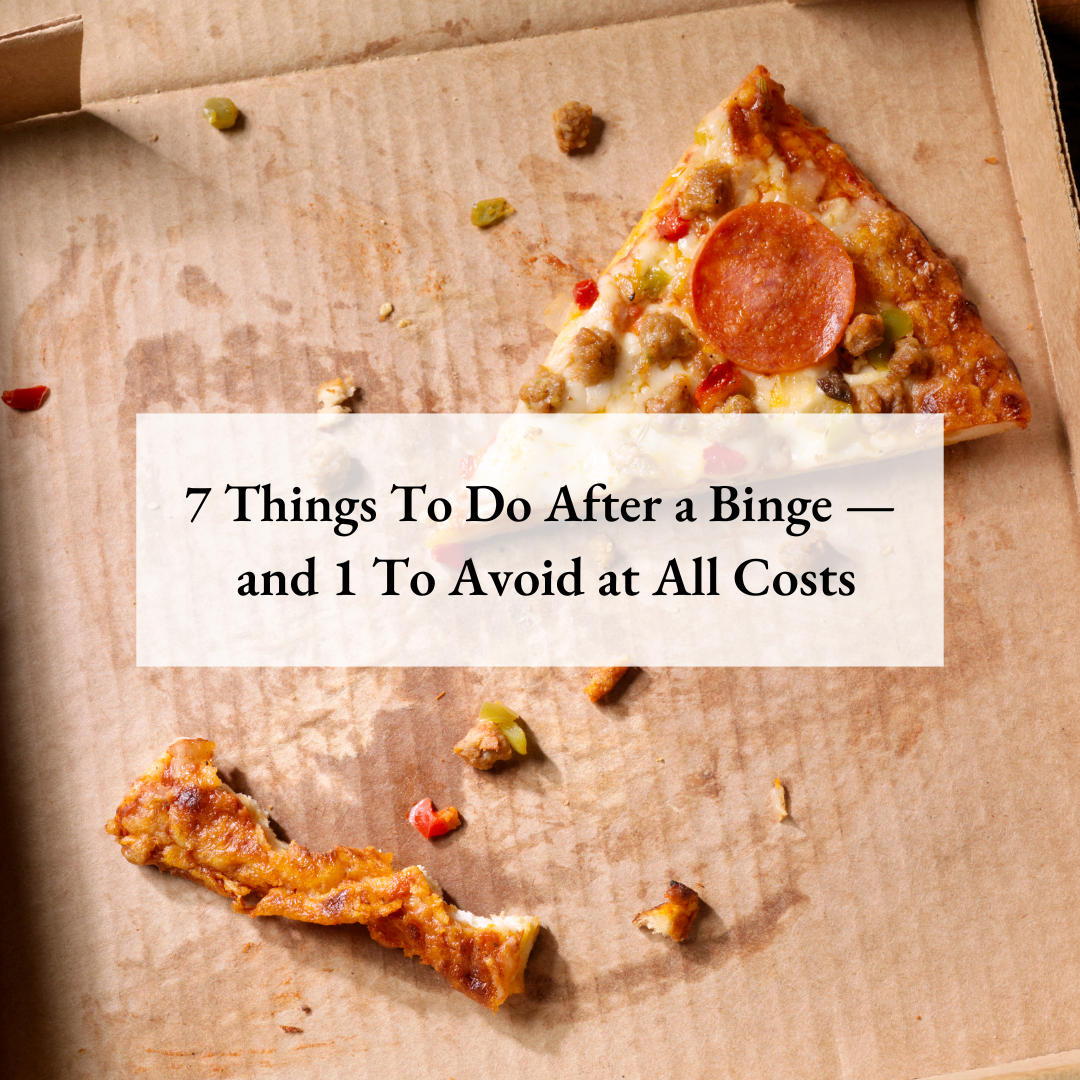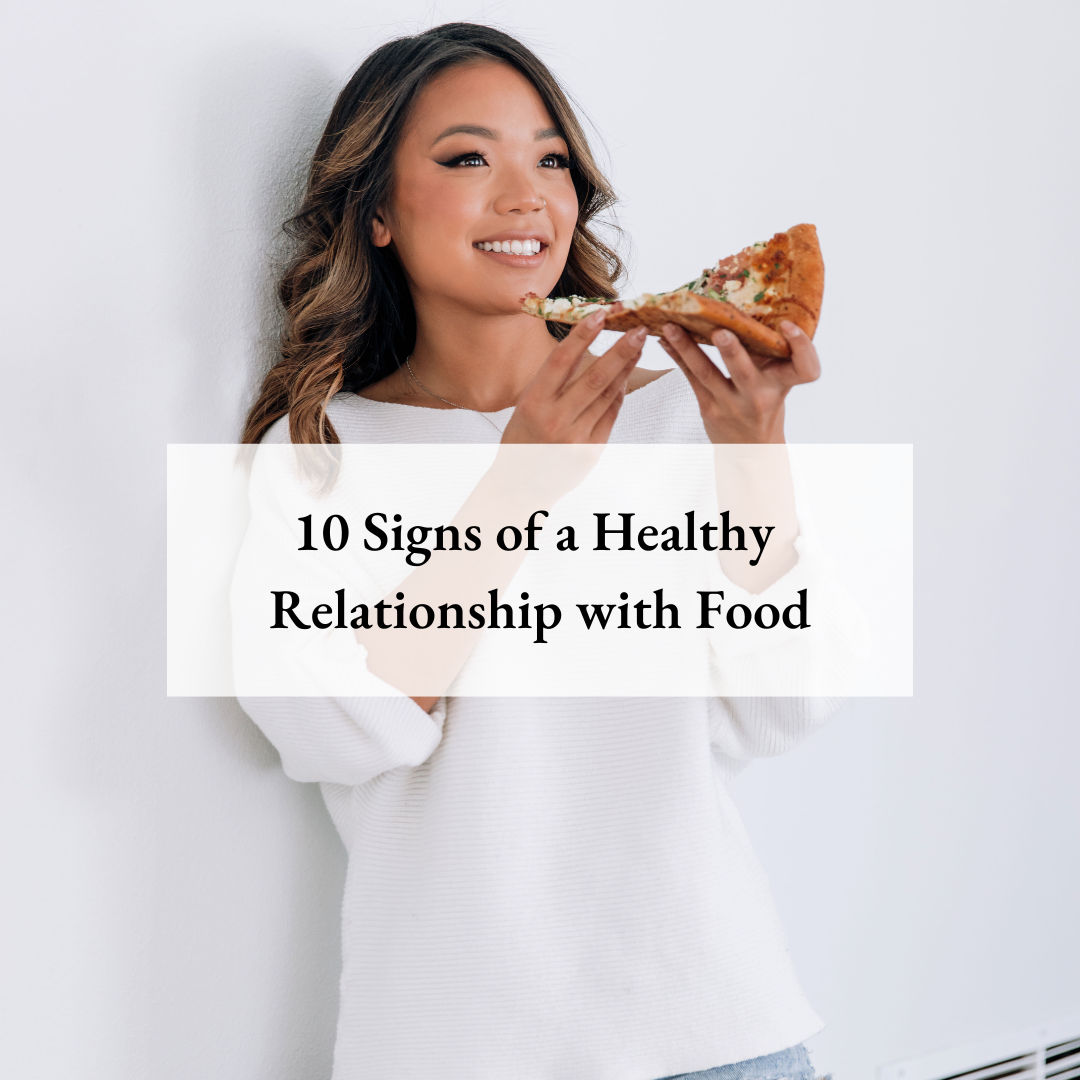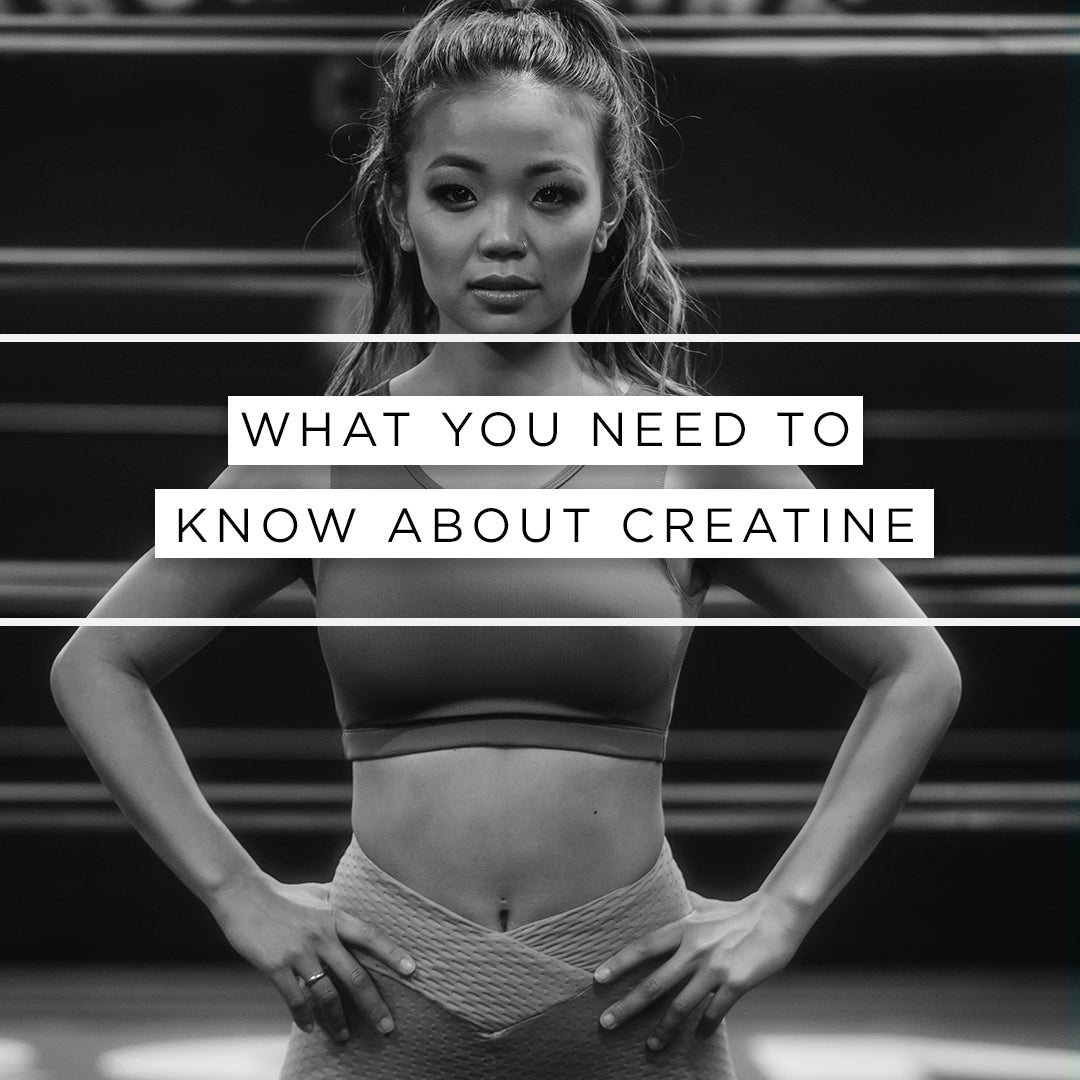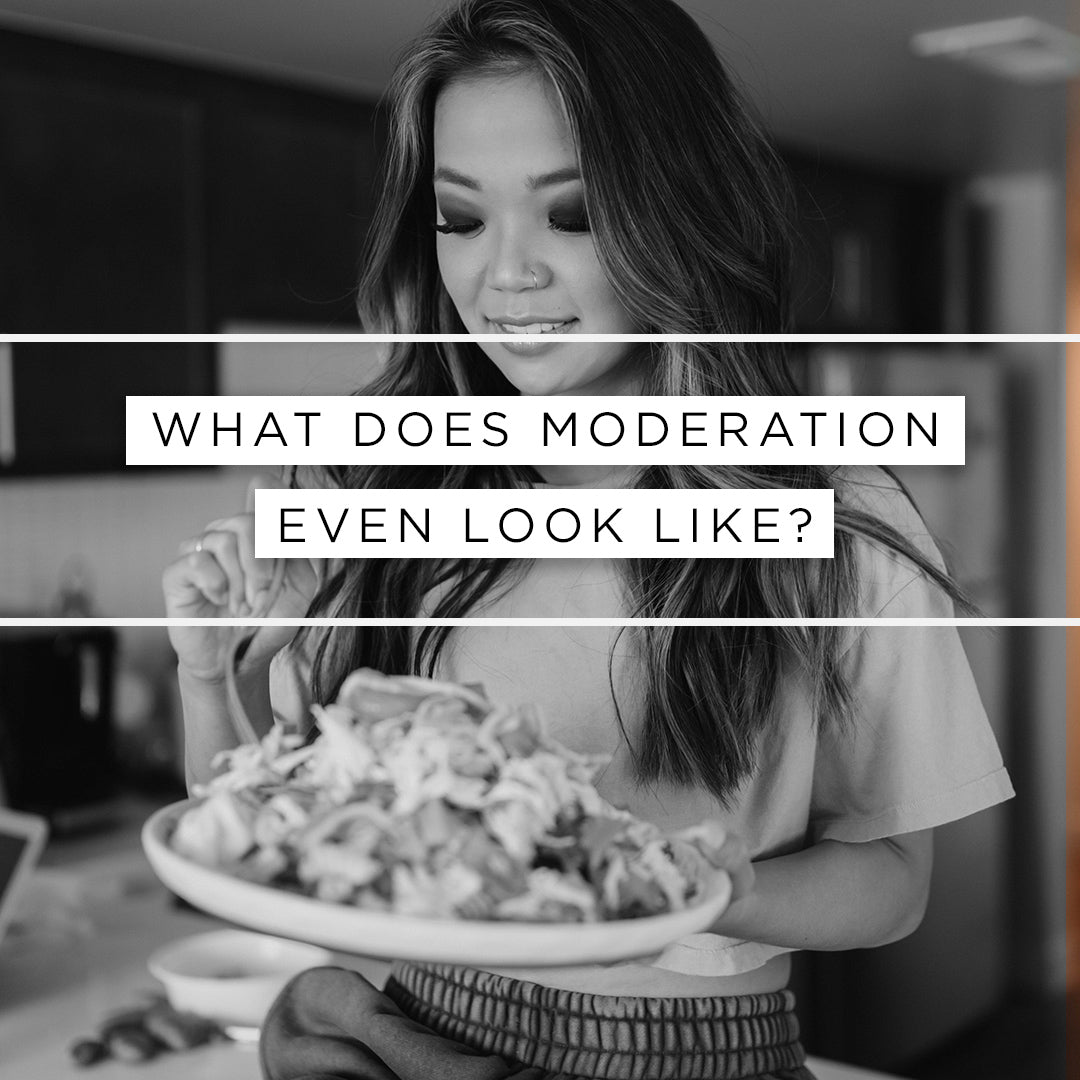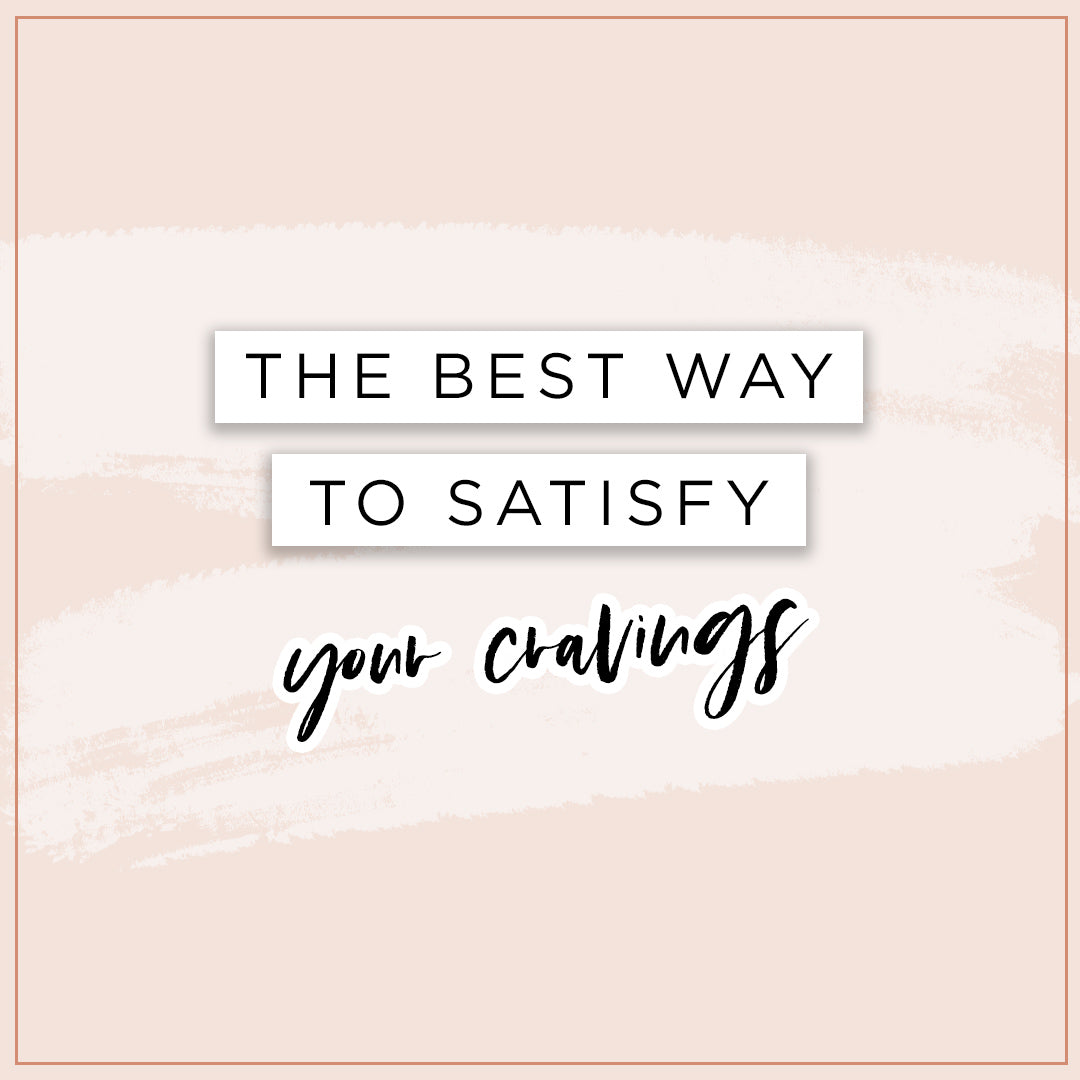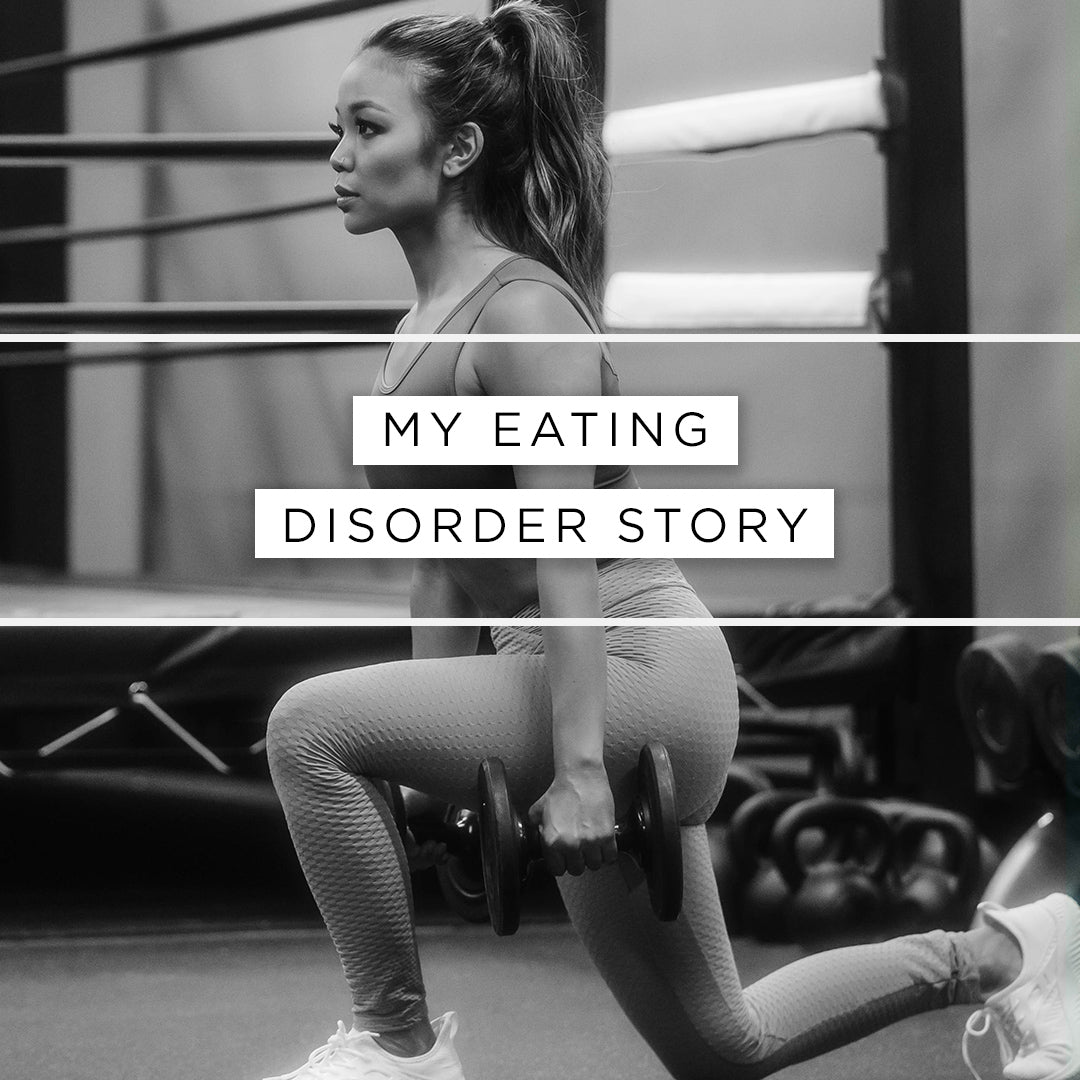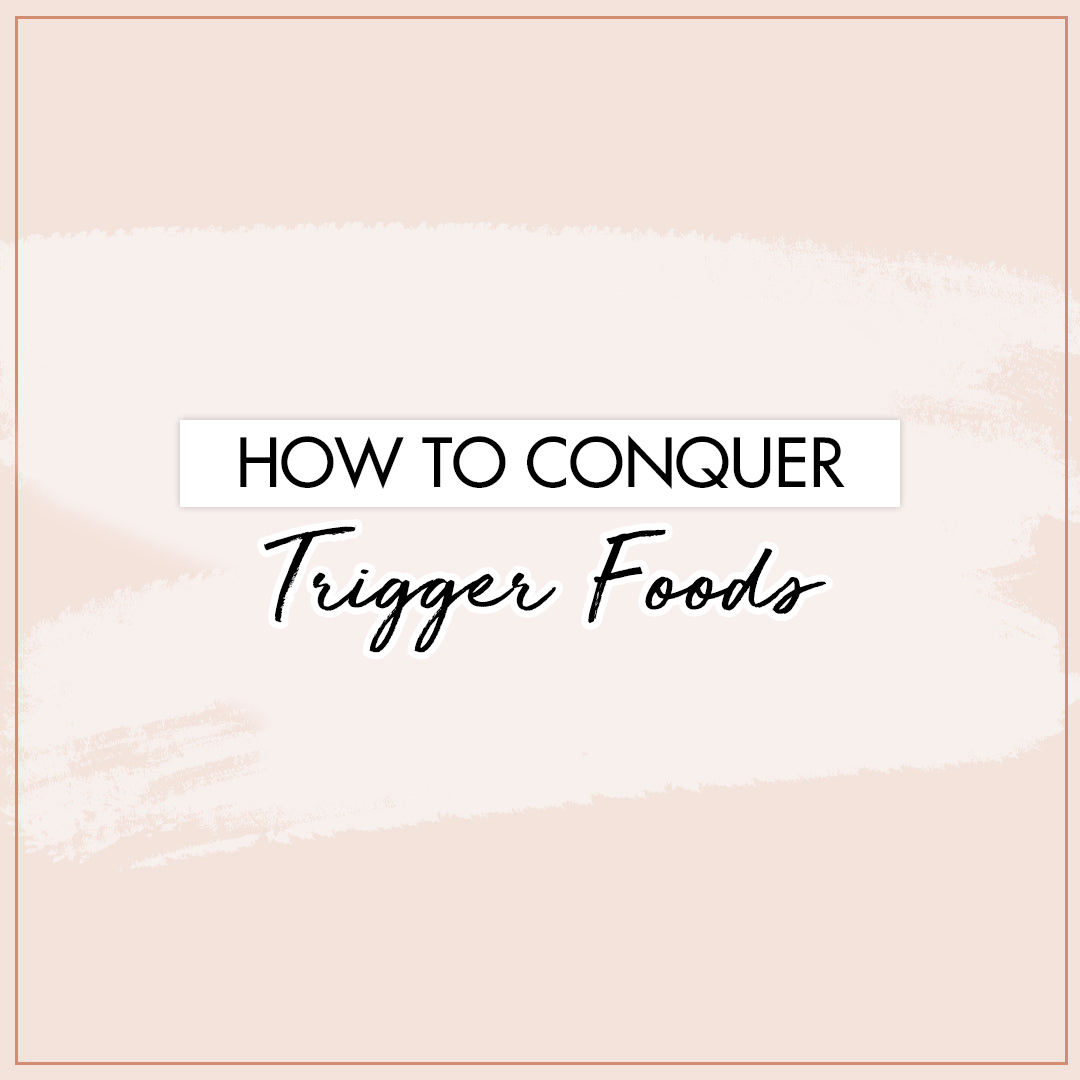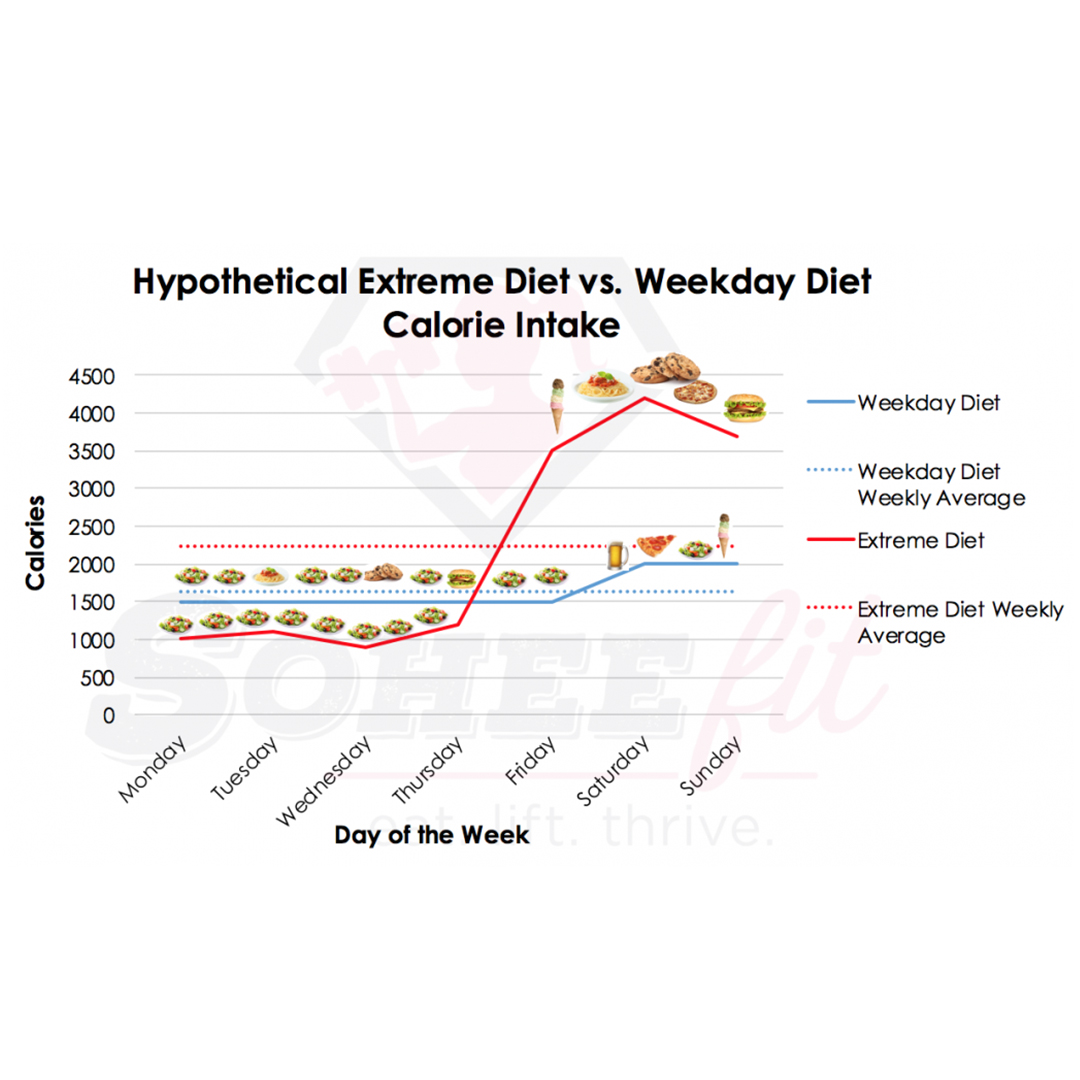Nutrition
Beyond Calories In, Calories Out
Beyond Calories In, Calories Out Why “Eat Less, Move More” Isn’t Enough Fat loss is not the focus of my content, but I’ve helped thousands of people successfully lose weight […]
How to Lose Fat Without Dieting: Changing the Narrative and Achieving Lasting Results
The fitness industry has long promoted a one-dimensional approach to fat loss, emphasizing strict diets and calorie tracking. However, there are alternative methods that can help you achieve your physique […]
7 Things To Do The Day After a Binge and 1 To Avoid At All Costs
Everything was fine. And then suddenly it wasn’t. It was like time stood still for a split second, and when things slid back into focus, you saw the aftermath: the […]
10 Signs of Healthy Relationship With Food
Somewhere and somehow, most people find themselves trapped in a rocky relationship with food. It’s usually preceded by good intentions: to get in shape, to eat healthier, or to lose […]
What You Need to Know About Creatine
Creatine is one of the most well-researched supplements out there. I take it every day, as do several other fitness buffs…
What does “moderation” even look like?
Moderation is a term that I’ve used quite a bit in my career. Some of you might even remember…
The best way to satisfy your cravings
There’s an infographic that’s been circulating for a long, long time, and it says something…
My eating disorder story
I’ve been very open about my mental health struggles as of late. Like many of my audience and peers, I’ve been full of worry and stress over numerous matters…
How to Conquer Trigger Foods
This is a post that I wrote together with my colleague Georgie Fear. Georgie is a registered dietitian and nutrition coach whose interests align closely with mine…
The Weekday Diet
A few years ago, I started noticing a trend with people who would come to me for help with their diets. When asked what their biggest…
Beyond Calories In, Calories Out
Why “Eat Less, Move More” Isn’t Enough
Fat loss is not the focus of my content, but I’ve helped thousands of people successfully lose weight and keep it off.
I don’t claim to have a proprietary method, I don’t prescribe a magical macro split, and I don’t sell a transformative 12-week program that blasts belly fat.
So, what’s the secret?
Nearly 13 years of coaching experience has taught me that all successful weight loss cases must be taken beyond the notion of “calories in, calories out,” and into the realm of behavior change.
This puts the onus on me as the coach to figure out what each individual needs. It’s hard work, and that’s why you don’t see a lot of coaches doing it. Instead, many give out generic, (usually) low-calorie programs and blame clients’ “failures” on an inability to “stick to the plan.”
But if the only thing that you had to focus on when it comes to fat loss was eating fewer calories than you burn, why do so many people struggle?
If you’ve ever tried and failed to lose weight, it’s not that “calories in, calories out” didn’t work for you or that CICO isn’t real. And it’s certainly not that you’re lazy or didn’t work hard enough.
Read on for insight into what really happened and how you can start taking the small steps that will set you up for long-term success.
Is “Calories In, Calories Out” Legit?
Short answer: yes.
The concept of CICO is a fundamental principle of nutrition and metabolism. When we gain or lose weight, there’s an imbalance between the number of calories we’re eating and the number of calories we’re burning.
No named diet — not keto, not paleo, not intermittent fasting — can defy this.
When calories are controlled for, there is no evidence to suggest that any specific diet program or dogma is superior to another in terms of weight loss.
What the data does support is that dietary adherence (i.e. our ability to follow and stick to a diet) is arguably the most important factor of successful weight loss.
And that’s where things get interesting.
Diet Failure Rates
It’s no secret that most people struggle to lose weight and actually keep it off.
In fact, the majority of high-quality follow-up treatment studies show that individuals with obesity are not successful in maintaining weight loss over time.
People who shrug their shoulders in response to this data and insist that people just need to “eat less and move more” have it backwards. As it turns out, behavior modification, progressive lifestyle changes, and education make a huge difference in whether or not someone is able to lose weight and sustain the loss long-term.
Overlooked Barriers & Facilitators
When we take a closer look at the barriers to weight loss, it’s no wonder that long-term success rates are so abysmal.
Blanket advice and cookie cutter diet programs don’t account for the fact that people experience life differently:
→ You can tell someone to “eat less and move more”… but what if they work 70 hours a week, live 30 minutes from the closest gym, and struggle with arthritis?
→ You can tell someone to “eat less and move more”… but what if they have a history of binge eating and fall victim to all-or-nothing thinking whenever they eat “off plan”?
→ You can tell someone to “eat less and move more”… but what if they can’t afford a gym membership and live with family members who don’t support their fat loss efforts?
The point here isn’t to suggest that we’re victims of our circumstances or that pursuing weight loss is fruitless unless the planets are perfectly aligned in our favor. It’s to acknowledge that, in the grand scheme of things, energy balance is a tiny blip that doesn’t really move the needle unless individual barriers are taken into consideration.
Practical Steps You Can Take For Successful Fat Loss
Below, I dive into some of the small steps I take with my own 1-on-1 clients. Regardless of whether or not you’re trying to lose weight, these strategies can have a powerful impact on your relationship with food, and change the trajectory of your mental and physical health for the better.
Identify Non-Negotiables & Painless Swaps
Many people make the mistake of swearing off everything they love at the start of a diet, making something hard (being in a calorie deficit) needlessly harder.
The first thing I instruct every client to do is reflect on their “non-negotiables” — foods and drinks they look forward to every day and can’t imagine living without.
For some, it’s their morning whole milk latte. For others (me), it’s a few pieces of dried mango after dinner.
From there, we discuss the foods and drinks they’re currently consuming that they wouldn’t necessarily miss. Rather than cutting these items out entirely, we identify “painless swaps,” either by scaling back portion sizes (e.g., swapping a large latte for a smaller one) or trading a higher calorie item for a lower calorie equivalent — assuming they genuinely enjoy the lower calorie version. Remember: these swaps should be painless, meaning they don’t leave you feeling emotional or deprived.
Practice Regular Eating Patterns
When I stress the importance of adopting regular eating patterns, I’m usually met with some degree of skepticism. Eating regular meals (breakfast, lunch, and dinner) sounds basic, but it’s amazing how many people aren’t doing it.
Delayed eating, whether in the form of skipping meals or intermittent fasting, is one of the strongest maintaining mechanisms of binge eating — a disordered pattern of eating that can sabotage weight loss efforts and quality of life (among other things).
If this is something you struggle with, eating at regular intervals throughout the day is the most powerful thing you can do to break the cycle. The general recommendation is three meals, two snacks, and no eating in between (3+2+0), but I work closely with each client to come up with a version of this that they can realistically adhere to.
If you have strict rules about when you’re allowed to eat and have noticed patterns of overeating or binge eating, I encourage you to reflect on how you can make your eating schedule more structured and predictable.
Add vs. Subtract
Diets are typically associated with deprivation, but they don’t have to be. Rather than focusing on everything you can’t have (which, in reality, is very little), focus on what you can add to your meals and snacks to make them more satisfying and nutritious.
Here’s what I mean.
Say you go out for dinner and really want a burger and fries. Instead of forgoing something you’ve really been looking forward to, ask the server to swap half of the fries for a side salad.
Maybe you love eating cereal for breakfast for the taste and nostalgia. Instead of banning it from your diet, have a smaller bowl alongside some Greek yogurt with nuts and berries.
Aside from encouraging the inclusion of extra nutrients, this practice promotes an abundance mindset, promotes satiety, and minimizes feelings of deprivation — all great things for long-term calorie moderation and overall satisfaction.
Establish Keystone Habits
Dieting can feel like a brute force effort if your internal and external environments aren’t set up to facilitate success. This is why I’m such a huge proponent of establishing habits.
We hear a lot about the importance of “self-control” and “willpower” in relation to dieting, and while they might be effective initially, neither translate into long-term success because they’re cognitively fatiguing. Habits, on the other hand, require little cognitive energy because they happen automatically.
The goal here is to establish habits that clear the path for you to make choices that support your goals without having to think about it. This doesn’t mean you won’t face challenges or will never have to make difficult decisions, but at the same time, you shouldn’t feel like you’re constantly white-knuckling through life in pursuit of a weight loss goal.
Practice Psychological Flexibility
Without a doubt, psychological rigidity is one of the main predictors of weight regain. Psychologically rigid people tend to demonstrate disordered eating patterns and fall prey to binge eating episodes after periods of severe caloric restriction. It’s very reflective of the “all-or-nothing” mentality we see in people with strong dietary restraint, who spiral the moment they break one of their food rules.
On the flip side, psychological flexibility is associated with less disordered eating and a willingness to make lifestyle changes. When things don’t go as planned, people who exhibit this trait don’t catastrophize or give up. Instead, they reflect on what happened and do the next best thing.
It’s the difference between taking two steps forward and one step back versus taking one step forward and two steps back.
Having less time to exercise doesn’t mean you have to skip your entire workout. Eating one unplanned cookie doesn’t mean you have to eat the entire plate. If you can learn to be flexible when circumstances change, you’ll be able to navigate anything that tries to throw you off course.
***
The biggest problem with weight loss advice? It’s too generic.
The phrase “calories in, calories out” might be empirically correct, but blindly prescribing it to any client who wants to lose weight discounts the genetic, behavioral, and physiological factors that are so important to consider.
So, take time to establish a foundation of behaviors, habits, and skills that can support your weight loss journey when the water gets rough. It might take longer initially, but I can assure you that the reward will be well-worth it.
References:
Deslippe, A. L., Soanes, A., Bouchaud, C. C., Beckenstein, H., Slim, M., Plourde, H., & Cohen, T. R. (2023). Barriers and facilitators to diet, physical activity and lifestyle behavior intervention adherence: a qualitative systematic review of the literature. The international journal of behavioral nutrition and physical activity, 20(1), 14. https://doi.org/10.1186/s12966-023-01424-2
Doorley, J. D., Goodman, F. R., Kelso, K. C., & Kashdan, T. B. (2020). Psychological flexibility: What we know, what we do not know, and what we think we know. Social and Personality Psychology Compass, 14(12), 1–11. https://doi.org/10.1111/spc3.12566
Fairburn, C. G., Cooper, Z., & Shafran, R. (2003). Cognitive behaviour therapy for eating disorders: a “transdiagnostic” theory and treatment. Behaviour research and therapy, 41(5), 509–528. https://doi.org/10.1016/s0005-7967(02)00088-8
Gupta H. (2014). Barriers to and Facilitators of Long Term Weight Loss Maintenance in Adult UK People: A Thematic Analysis. International journal of preventive medicine, 5(12), 1512–1520.
Hall, K. D., Heymsfield, S. B., Kemnitz, J. W., Klein, S., Schoeller, D. A., & Speakman, J. R. (2012). Energy balance and its components: implications for body weight regulation. The American journal of clinical nutrition, 95(4), 989–994. https://doi.org/10.3945/ajcn.112.036350
Johnston, B. C., Kanters, S., Bandayrel, K., Wu, P., Naji, F., Siemieniuk, R. A., Ball, G. D., Busse, J. W., Thorlund, K., Guyatt, G., Jansen, J. P., & Mills, E. J. (2014). Comparison of weight loss among named diet programs in overweight and obese adults: a meta-analysis. JAMA, 312(9), 923–933. https://doi.org/10.1001/jama.2014.10397
Look AHEAD Research Group (2014). Eight-year weight losses with an intensive lifestyle intervention: the look AHEAD study. Obesity (Silver Spring, Md.), 22(1), 5–13. https://doi.org/10.1002/oby.20662
Nordmo, M., Danielsen, Y. S., & Nordmo, M. (2020). The challenge of keeping it off, a descriptive systematic review of high-quality, follow-up studies of obesity treatments. Obesity reviews : an official journal of the International Association for the Study of Obesity, 21(1), e12949. https://doi.org/10.1111/obr.12949
Tay, A., Hoeksema, H., & Murphy, R. (2023). Uncovering Barriers and Facilitators of Weight Loss and Weight Loss Maintenance: Insights from Qualitative Research. Nutrients, 15(5), 1297. https://doi.org/10.3390/nu15051297


